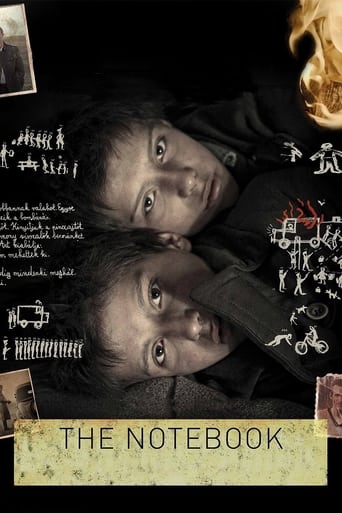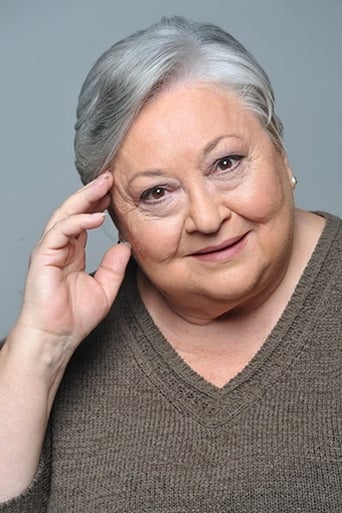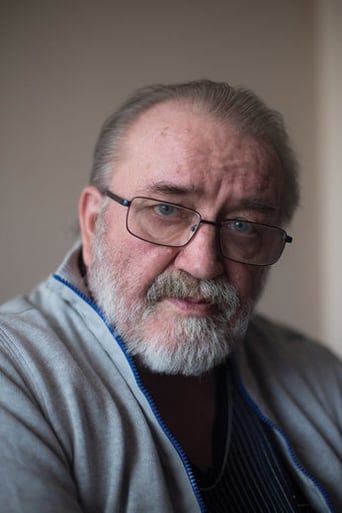ThiefHott
Too much of everything
Inadvands
Boring, over-political, tech fuzed mess
Raymond Sierra
The film may be flawed, but its message is not.
Phillipa
Strong acting helps the film overcome an uncertain premise and create characters that hold our attention absolutely.
rmanory
Because the movie is about children experiences in WW2, I compare it to French movies with a similar plot and I can tell without doubt that this is perhaps the most terrifying of all. I think that the rough unexpected ending is not justified by the events preceding it. The boys do train themselves to withstand hardship--this is a very interesting point in the movie--but there is no justification to the way they treat their father. They cannot blame him for their hardship, except perhaps the fact that he returns from the war as a broken person, hardly compared to the attentive and loving father he was before he was recruited. I think the movie is outstanding in many aspects. There is no good person and bad person in their life during the war, but that's no reason for their last action. Their separation is also hard to understand. All in all however, it is a masterpiece and deserves to be widely seen.
kely-campos1789
Can a dysfunctional mind survive to a war? maybe for this kind of thought human does a better adaptation to a disgraceful system. The Twins here push it out his coldness showing a "natural" behavior through the movie, this is a basic instinct? war shape you to get insane. His grandmother increased that behavior, without bound and walking in an edge of life. The twins might make crazy things just for his interpretation of justice, meanwhile his book is filled with language in an innocent voice.WWII shattered the Europeans feelings. When Humans try to reach a goal many time doesn't look sides.The Notebook is a Hungarian film, full of criticism and allegorical situations. No neglecting to forget their effort to not take part, just a brushwork of history. Centered in twins, you can understand the miserable life in those days.
Kike Orellana
In one of the most remarkable scenes of 'The Notebook', twin 12 year old brothers methodically, coldly trade punches. Each swings at the other, and then stands still, face expressionless, as he receives a slew of punches back. Gradually the punches are harder, and eventually they start using belts to ratchet up then pain threshold. They are children but this is no game: they are toughening up, physically and psychologically, to survive the war. They have realized that cuddling together and wishing the war away will not save them, and they better be prepared for hunger, pain, betrayal and daily humiliations. And survive they do, although they decide that in order to do so they must blackmail priests, steal from corpses, bully their grandmother and plant explosives in someone's kitchen. The director competently handles deep staging and the use of long lens, very apt for the emotional distance the story takes with regards to the acts it depicts. The film works in large part because of the performance of László Gyémánt and András Gyémánt, real life twins, who give a stupendously restrained, controlled performances, often consisting solely of intense stares and vengeful glances. Color is mostly bleached out, music is sparse and some of the best moments consist of static, unnervingly long shots. The film is set in a small village straddling the Austro-Hungarian border during world war two. But it is not particularly interested in providing context of the war, or of Hungary's terrible plight in it, or in Nazism or in any other details of the historical setting. So don't expect to learn much about world war 2 in this film as it is merely the backdrop to a story that is really about survival and what happens to children's moral compass during war.Hungarian films are their own sub-genre. Perhaps no other country has produced such consistently bleak films, soaked in pessimism and mostly focused on moral corruption and confusion. This small gem of a film is yet another example of this cinematic tradition. This is not quite at the level of masterpieces such as 'Come and See'or 'Time of the Drunken Horses', my two favorite films about childhood during wartime, but absolutely deserves to be seen, or, to be more precise, endured.
samkan
Not to be a spoilsport with the first mediocre review of this film, THE NOTEBOOK is either unsure of what it wants to achieve or weak in it's execution of it's goal. The too brief introduction of the twins, their parents and their world plops us into their grandmother's home with little sympathy or understanding of their plight. The town, it's denizens and occupiers, are described only through the twins' narration so we're not allowed to form understanding or opinions of our own on such. The brothers' comprehension and reaction to their circumstances was simply not justifiable or evident to this viewer. What appear to be plot points - grandmom's jewelry, the soldier's arsenal, mom's infidelity - ultimately do little to enhance what appears to be THE NOTEBOOK's point - our young heroes' sad adaptation to their environment. Finally, no doubt THE NOTEBOOK's ending is meant to naturally flow from the story preceding it. I saw no relevance whatsoever. Because a film is foreign, sparse, harsh and in B&W doesn't automatically assign it merit. In contrast, similar setting, motif, characters, etc., has recently been used to great effect in Pawel Pawlikowski's IDA, a Polish film. Indeed, this film would make more sense; i.e., it's confusion forgiven, if it were a true account of a set of twins' ordeal. As an afterthought, and without sarcasm intended, Piroska Molná as "grandmother" does a fine acting performance.





